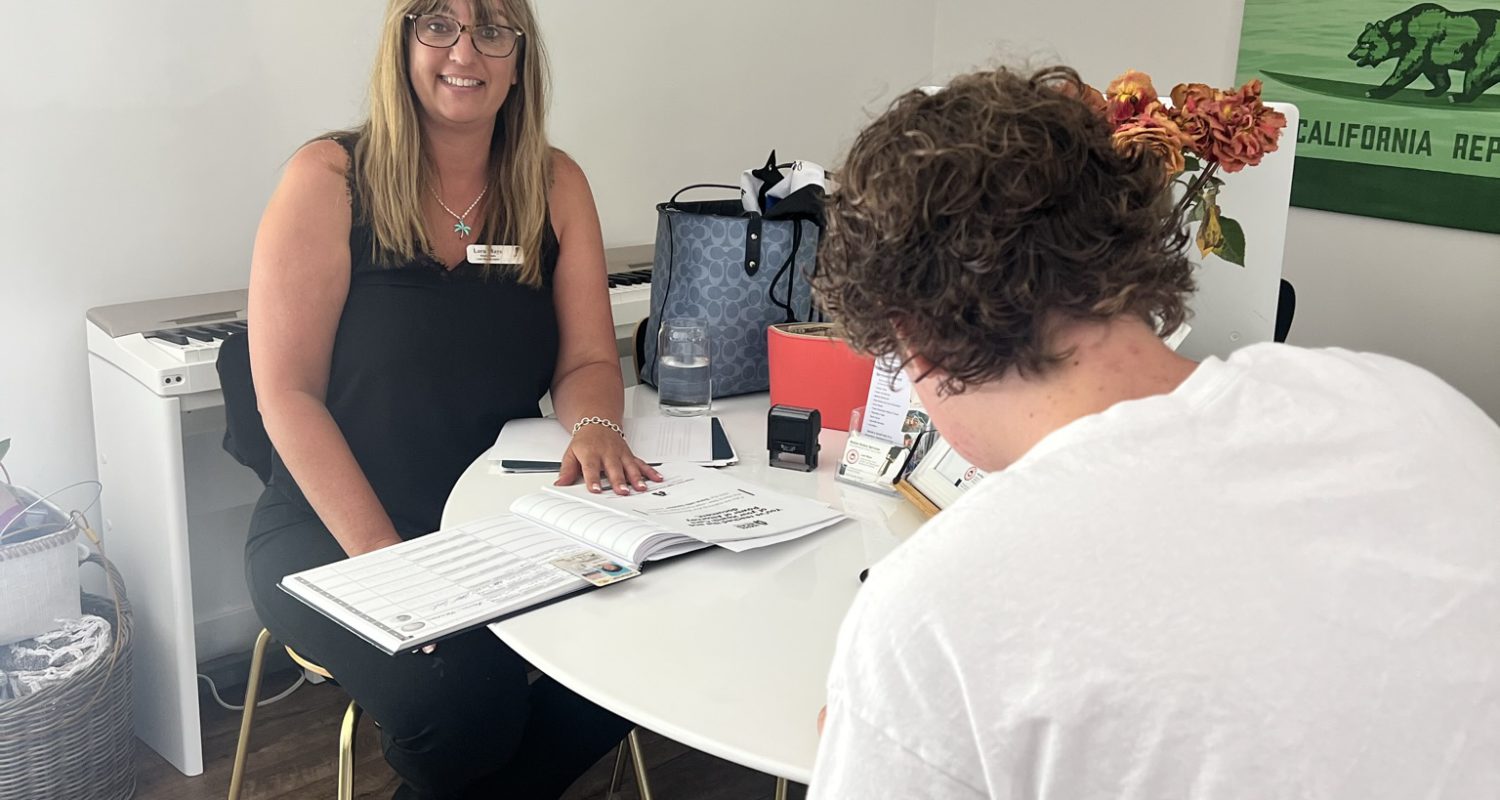You’ve done it. You created your Young Adult POA documents through Mama Bear Legal Forms. You filled out all the information. You printed the documents. You downloaded the app.
You’re done, right? Not quite. There’s one more important step.
And it’s the one that often trips people up who have otherwise done everything they need to get their important legal documents in order. That’s getting them notarized.
Why You Must Notarize Young Adult Power of Attorney Documents
People sometimes stop short of this crucial step because they don’t know where to find a notary. Or, because it feels like a hassle.
But notarization is a critical step in ensuring the legality and authenticity of various documents, from affidavits and powers of attorney to loan agreements, wills and yes, POA documents.
While notarizing a document may seem straightforward, there are specific requirements and considerations that individuals should be aware of to guarantee a smooth notarization process.
We caught up with seasoned professional and mobile notary public about why notarization matters, how to find a notary public, and how to prepare your legal documents for notarization so that the process is efficient and error-free.
How to Prepare a POA for Notarization: Interview with Lara Mays, Notary Public
One of the most common misconceptions about notarization is that it can only be done for specific types of documents. However, mobile notary Lara Mays emphasizes that you can actually notarize any document, as long as it meets a few essential criteria.
“As a notary, people come to me with their documents already created. I’m not an attorney, I don’t create documents or give advice however, I can notarize any document for individuals who need their signature notarized.” Lara explains. “It could be a letter or a form or a legal document; anything you want signed and dated and notarized.”
However, it’s crucial to note that while notarization is versatile, a few key elements must be present in the document to make it eligible for notarization. These elements include:
1. Affidavit: The document should typically include an affidavit, which is a written statement where the signer swears that the contents of the document are true. This is a common requirement for notarized documents.
2. Name and Address: The document should include the name and address of the individual signing it. This information helps verify the signer’s identity. Lara says to make sure the name on your POA forms is your full legal name, not a nickname. “Sometimes people will come to me with a document that is written with their nickname. But if it doesn’t match your legal ID, then I can’t notarize the document. So, make sure the name on your POA form matches the name on the form of identification being brought to the notary appointment.”
Another snag Lara sometimes sees is with hyphenated names. “I can’t notarize more than what’s on your ID, but I can notarize less. So, if the name on the POA document says ‘Jean Smith Wilson’ and the name on the ID is ‘Jean Wilson,’ I can’t notarize it. But, if the name on the POA form is ‘Jean Wilson’ and the name on the ID is ‘Jean Smith Wilson’ I can notarize it.”
3. Signature Space: There should be a designated space for the individual to sign the document in front of the notary. Mama Bear forms include this. Don’t sign the document however, until you are in the presence of a notary.
4. Date: The document should include a date, which is essential for recording the notarization process accurately.
Thankfully, Mama Bear POA forms include all necessary elements for notarization. Lara says she prefers that people keep the forms in the order they come off the printer.
“I’ve had people present Mama Bear forms for multiple states. I prefer them to leave it in the exact same order as it came out of the printer. Don’t sign it. Don’t do anything. Just bring it, because I know the order and know what I’m looking to verify. Keeping it in order for the notary will make the process smoother, faster and provide less opportunity for any potential errors to occur.”
What Kind of Identification is Acceptable for a Notary?
To ensure a smooth notarization process, individuals should bring a valid identification document (ID) such as a driver’s license, military ID, or passport. The ID should not be expired and must be in good condition.
In some cases, individuals may not have a valid ID, such as senior citizens without driver’s licenses. In such situations, Lara explains that two credible witnesses can vouch for the signer’s identity. These witnesses should not be family members but should have a good knowledge of the signer’s identity.
Lara emphasizes, “Credible witnesses should be friends or colleagues – not family members. Often a document being signed like a Power of Attorney (POA) has a family member named in the document. Say the son or daughter-in-law is in the document; mom and dad can’t vouch for their son or daughter. You need to utilize family friends. Also, credible witnesses need to show their IDs and will need to sign the notary’s journal.”
Signing in Front of the Notary
The importance of signing documents in front of the notary cannot be overstated. Depending on the type of notarial act being performed, such as a jurat (an oath), the document must be signed in the notary’s presence. Lara explains, “A jurat, which is like an oath, swearing that the document is true, has to be signed in front of the notary. It must be done in real-time.”
However, for an acknowledgment, someone can technically sign it on their own, and the notary only needs to verify their identity and confirm that they are signing willingly. In the case of your will* and POA forms, it’s best to wait and sign and date the forms in the presence of the notary.
*In the state of California, a will needs to be signed in the presence of two witnesses. Please check your state’s laws for specific requirements and regulations regarding wills.
How to Find a Notary Near You
Lara says the best way to find a notary near you is to perform a Google search, typing in “Notary Near Me” or “Mobile Notary.” Many notaries, including Lara, offer mobile notary services and can meet you at your preferred location, whether it’s a hospital, assisted living facility, coffee shop or even in the comfort of your own home.
“While you can find a notary at a bank or UPS Store, they may not be consistently staffed. And, they may not be open after typical business hours. The advantage of a mobile notary like myself is that we can come to your home or place of your choosing in the evenings and on weekends. People have busy lifestyles. It’s nice to know you can get your documents notarized in between a Zoom call or while you are getting ready for work.”
When choosing a notary, Lara says it’s important to look for notaries with positive reviews and who offer the services you need, such as mobile notarization.
“Read the reviews and look for what people are saying about them. Also, are they a loan signing agent? If so, they are required to have their background checked annually. That will let you know that the person does not have any felonies or sex offender charges or anything like that, providing another sign that they are trustworthy.”
What Does it Cost to Get a POA Notarized?
The cost of notarization services varies by state. Notaries can charge a fee for their services, and additional charges may apply for mobile notary services or travel fees. The fees for the notarial act itself are often regulated by the state’s Secretary of State, and they can vary.
Lara advises individuals to check their Secretary of State’s website for fee information, as it lists the fees for different notarial acts.
How Long Does it Take to Notarize a POA Document?
The duration of the notarization process can vary depending on several factors, including the complexity of the document and the number of signers. In some cases, notaries can expedite the process by scheduling multiple signings in a short time frame, as Lara suggests with Mama Bear parties.
“I will schedule signing parties with folks who all bring their Mama Bear paperwork during the designated time. It’s usually with friends, which makes it fun and convenient. Typically, in those situations, it takes me about 15 minutes per young adult POA to fully notarize it.”
Don’t Let Notarization Stop You From Completing Your Important Documents
Notarization is a crucial step in legalizing and authenticating various documents. Understanding the key elements required for notarization, verifying the signer’s identity, and signing documents in front of a notary are essential for a smooth notarization process.
By avoiding common mistakes and being prepared with the necessary identification and documents, individuals can ensure a successful notarization experience. Additionally, remote notarization options and reputable notary selection can provide convenience and peace of mind for those unable to visit a notary in person.
POA Information and Resources
One of the elements Lara includes in her POA notarization sessions is a short presentation for young adults about why POA documents are important.
“Many young people don’t understand why they need a POA. I explain that if they are incapacitated, because they are over 18, their parents can’t help or advocate for them without a POA. Or, in the case of a financial POA, there are things that come up that people don’t think about like a landlord situation. When property management companies take advantage of young people while they’re in college, mom and dad might be a guarantor on the account but unless they have a POA signed, the company won’t talk to the parents. Their hands are tied without the legal document that states their parents can do this for them.”
We’ve written extensively about POA forms on the site. To learn more about why they’re necessary and get all your questions answered, click the links below.
- Why Young Adult POAs Aren’t for Helicopter Parents
- Hospitals, Banks and Colleges: 3 Places Parents Need Young Adult Power of Attorney Forms
- How to Create a Power of Attorney Form for Your College Student in 15 Minutes
- Questions Parents Ask About POA Forms
Read Personal Power of Attorney Stories
Would you like to hear from more parents about their experience with Mama Bear Legal Forms? In addition to addressing questions, hear from these individuals about their POA stories:
- Jennifer McBride sees her daughter become a Volunteer
- Sara Smith’s sends her daughter to school
- Jason learns why being a doctor isn’t enough to help his son
Putting a power of attorney form in place now takes the stress of worrying about whether or not you will be able to help your child when they need it off your shoulders.
Mama Bear’s POA package costs just $79 and includes a Health Power of Attorney, Finance POA and HIPAA Release Form.



